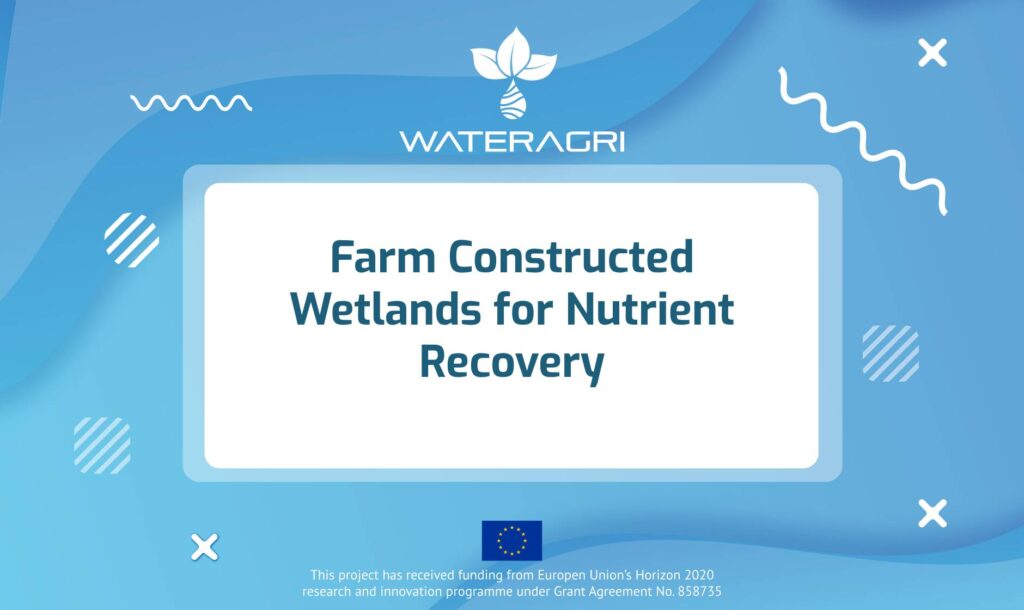WATERAGRI partners from Lund University developed solution Farm Constructed Wetlands (FCW) for Nutrient Recovery. Positioned as a Nature-Based Solution (NBS), FCW emerges as a multifaceted approach to address water-related challenges in agriculture.
At the heart of FCW‘s effectiveness lies its ability to retain phosphorous (P) and nitrogen (N), two pivotal nutrients often implicated in water pollution. Phosphorous, primarily found in sedimentation-prone particles, tends to be adsorbed, while nitrogen undergoes biochemical processes such as nitrification and denitrification. Bacteria play a crucial role in converting mineral nitrogen into gas, which is then released back into the atmosphere. Additionally, the wetland’s vegetation plays a part by absorbing and accumulating nutrients, further contributing to the retention process.
The overarching objective of FCW is to mitigate the eutrophication effects stemming from agricultural drainage water or water affected by agricultural activities. Beyond nutrient retention, FCWs bring an additional layer of utility by offering a means to manage the flow of water through farmland. This capability allows for the conservation of water resources, providing a reserve that can be tapped into during periods of irrigation need. Moreover, FCWs act as a natural buffer during intense rainfall events, mitigating downstream problems by temporarily storing excess water and reducing peak flows.
By seamlessly integrating with the natural environment, FCWs not only address nutrient-related challenges but also offer a holistic solution that aligns with the principles of Nature-Based Solutions. WATERAGRI takes pride in championing this transformative approach, paving the way for a more sustainable and resilient agricultural future.
